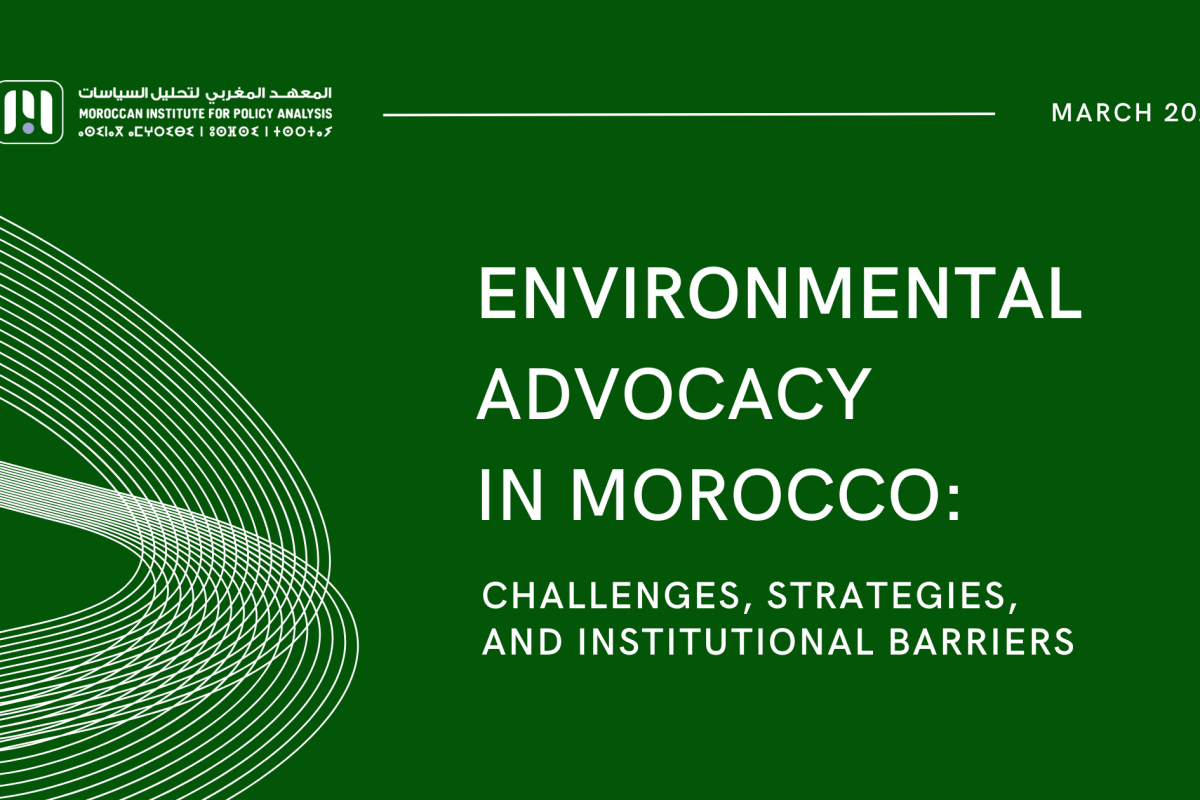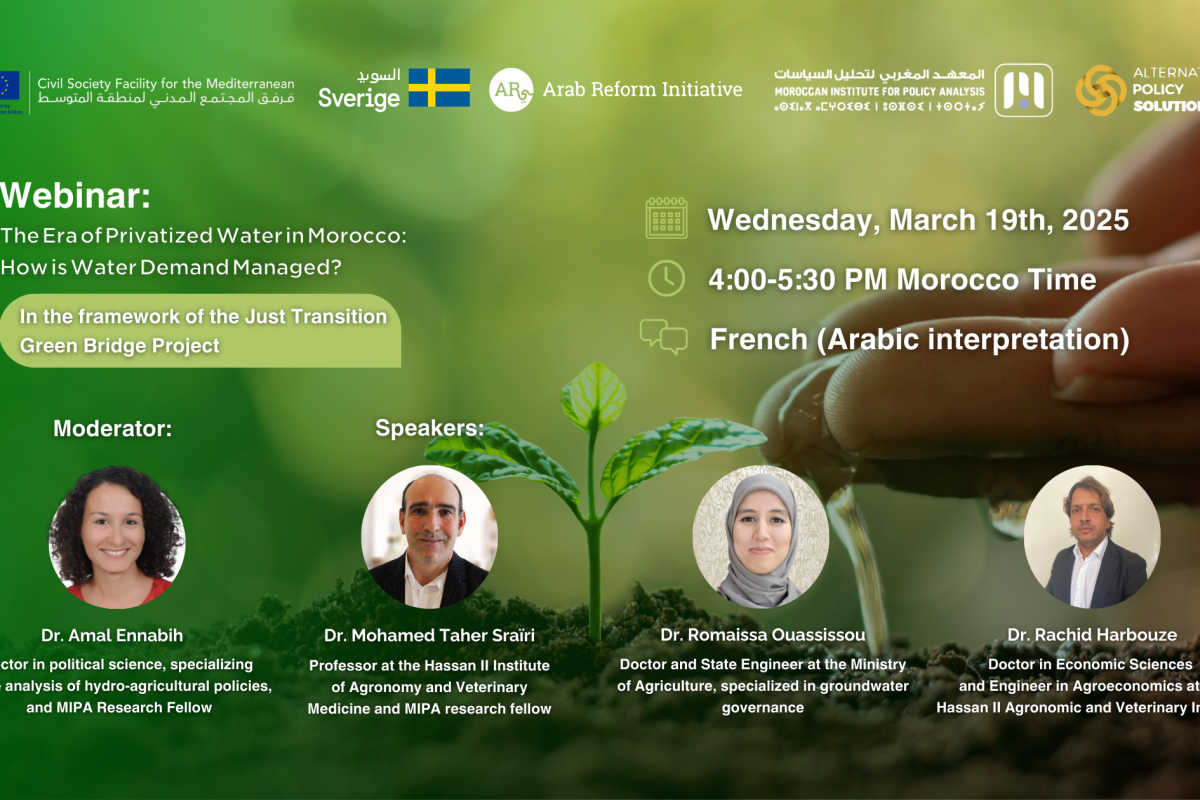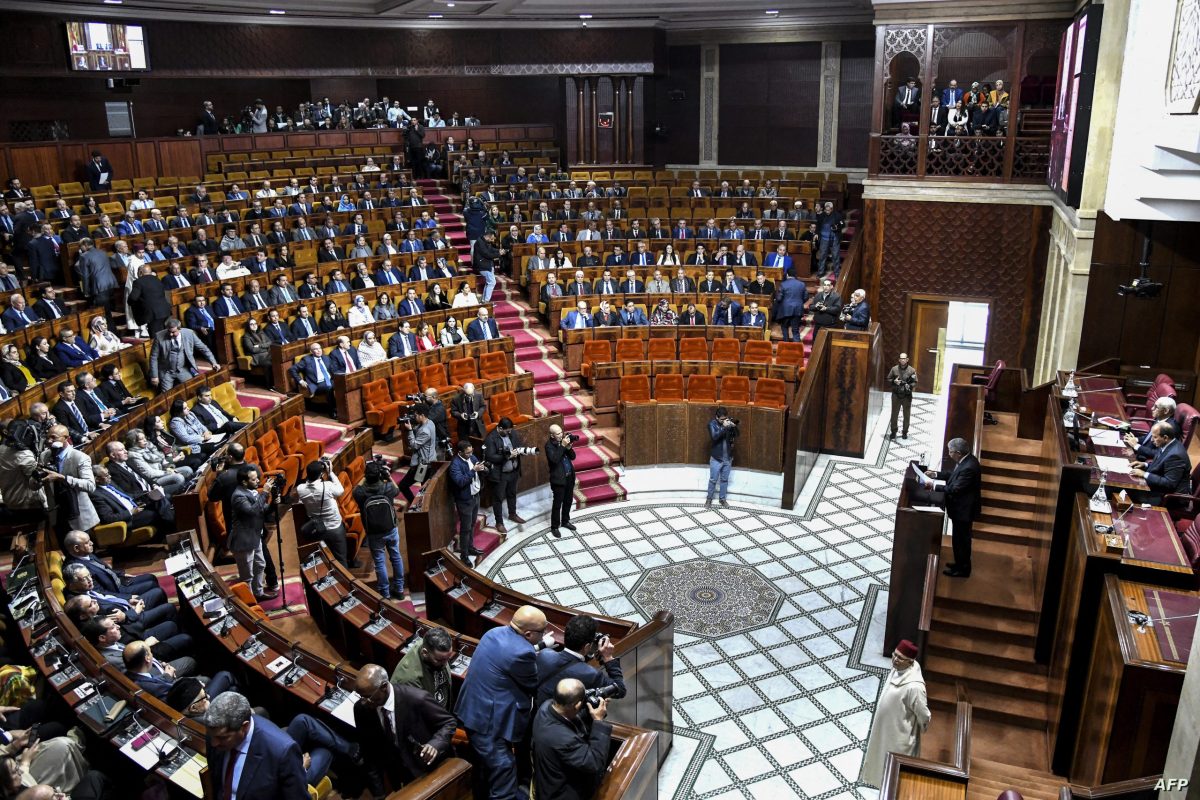[vc_row][vc_column][vc_column_text]
In Breaking with Iran, Morocco cozies up to the Trump Administration to Protect its Regional Interests
Download article
Introduction
On May 1, 2018, Moroccan Foreign Minister Nasser Bourita announced that Morocco was cutting diplomatic ties with Iran. During the announcement, Bourita accused Tehran of providing military and financial support to the Polisario Front, a pro-independence movement challenging Moroccan soverignty over the Western Sahara, through the Iranian embassy in Algiers via a Hezbollah proxy. All of the accused parties strongly denied the claims, while the Arab League, Qatar, and the group of countries blockading Qatar, including Saudi Arabia, Bahrain, the UAE, and Egypt, all expressed support for Morocco’s decision.
Morocco and Iran have often been at odds with each other. For example, Morocco had previously cut diplomatic relations with Iran in 2009. It was only recently, in 2017, that the two countries reestablished ties. However, the diplomatic rupture in May of last year was especially significant. It revealed many insights about current geopolitics in the Middle East and North Africa (MENA) region. First, Saudi Arabia is ramping up the pressure on Arab nations to take a stronger position in the Saudi-Iran regional divide. Second, Morocco is searching for a resolution that gives international legitimacy to its soverignty over Western Sahara. Third, the Trump administration is pursing increasingly hawkish policies on Iran. In order to shore up support for its territorial claims over Western Sahara and to maintain strong relations with key western and regional allies, Morocco chose to make an unambiguous diplomatic statement.
Through breaking off relations with Iran, Morocco was thus aiming to kill two birds with one stone: First, it was hoping to disseminate anti-Polisario/Algeria narratives to encourage greater international backing for its position over the Western Sahara. Second, it was attempting to solidify its relationship with two major allies: Saudi Arabia and the United States-and especially key national security actors like John Bolton.
This article thus argues that Morocco’s aggressive approach to Iran aimed at establishing itself as a key Arab ally of the Trump administration. Its primary objectives are to gain greater international legitimacy for its position over Western Sahara and to remain relatively neutral in the GCC regional crisis—epitomized by the division between the Saudi/UAE alliance versus the Qatar/Turkey bloc. Western Sahara has long been an existential national priority for the Kingdom and garnering international support for this position constitutes a major element of Moroccan foreign policy. However, Morocco is also attempting to assert a more independent foreign policy, especially vis-à-vis the Saudi bloc and the GCC crisis. The country took a firm position on Iran in 2018, but in 2019 it has also distanced itself from Saudi Arabia and the aggressive leadership of Crown Prince Mohammed bin Salman. Morocco is also becoming increasingly concerned about the rising US-Iran tensions in the region and had made a point to assert some distance between US policy and its own, as evidenced by its absence at the Warsaw conference this year.
Morocco-Iran relations
There are ideological and political roots to Morocco-Iran tensions. King Hassan II maintained a largely pro-Western and especially pro-American foreign policy, along the same lines as the former Shah of Iran, Mohammed Reza Pahlavi. The Moroccan king allowed Iran’s former Shah, Mohammed Reza Pahlavi, to flee to Morocco after the 1979 Iran revolution. After Ayatollah Khomeini overthrew the country’s monarchical regime, the Shah fled first to Egypt, then to Morocco. This created a tension between the Morocco and the new leadership in the Islamic Republic of Iran.
The relation remained strained and in 2009, Morocco cut diplomatic relations over accusations that Iran’s questioned Bahraini sovereignty, leading to suspicions about Iranian interference in Morocco’s values of territorial integrity. Morocco was also concerned about Iran fomenting sectarian tensions and supporting the country’s Shiite minority. Morocco, have small Shi’ite minorities that are not recognized by the government, and hence tend to restrict Shiites activities with the justification that they represent a threat to the “spiritual security” of citizens. Conservative political leaders warned of a “sectarian Shi’ite invasion.”
In an interview with Breitbart last year, one of President Trump’s favorite news outlets, Morocco’s foreign minister went as far as to claim that Iran was indoctrinating Moroccan youth: “The Moroccan government viewed Iran’s missionary work among its youth as a means to undermine government authority by indoctrinating young Moroccans to reject the moderate Sunni Islam practiced in Morocco in favor of the radical Shia Islam of the Iranian regime.”
He also emphasized, at various points, that Iran was delivering weapons to the Polisario through and Hezbollah proxy. Additionally, “Bourita told Fox News that the Iranian arms shipments coincided with recent threats by the Polisario ‘to establish some military presence east of the Moroccan Sahara defense system.’”
Tensions over Western Sahara
The decision to cut diplomatic ties with Tehran took place during a tense time filled with domestic and regional challenges for Morocco. Earlier in April 2018, Morocco had warned against a potential Polisario violation of a UN-mandated buffer zone in the Western Sahara, especially surrounding the area of Guerguerat, further escalating tensions between the country and the separatist movement. Representatives of the Polisario and UN officials both denied Morocco’s claims. Algeria’s backing for this group means that Morocco views Algeria also as hostile to its national interests. Allegations of troop movements from both the Moroccan and the Polisario side of the defensive walls occasionally flare up, and both sides often threaten to reignite the armed conflict if provoked.
In April 2018, this happened. Moroccan Foreign Minister Bourita claimed that the Polisario were violating the agreements of the UN-brokered ceasefire by mobilizing in Tifariti, a city situated east of the Moroccan defensive wall and in the UN buffer zone within the Western Sahara territory. Bourita met with UN Secretary General Antonio Guterres and demanded that the UN address the Polisario’s breech of the agreement adding that Morocco was considering “all options” to address the transgression.
Trump, Iran, and Western Sahara
Those tensions in the Western Sahara partly explain why Morocco decided to make a clear effort to cozy up to the Trump administration. A bold statement in support of Trump’s hawkish foreign policy could better ensure American support for Morocco’s position in the conflict, in continuation of traditional U.S. policy. Then, for the first time in six years, Western Sahara talks were held in December 2018 between Morocco, the Polisario, Algeria, and Mauritania. The first and second round was held in Geneva under the direction of the UN envoy for the territory of Western Sahara, Horst Köhler.
The arrival of John Bolton into the White House as National Security Advisor in April 2018, right before the time Donald Trump announced he was unilaterally pulling the United States out of the Iran nuclear deal and just before Morocco cut off diplomatic relations with Tehran, revealed the importance, albeit symbolic, of Morocco’s decision. The return of Bolton, who was former U.N. ambassador under George W. Bush and a major proponent of the Iraq War, had several implications for Morocco regarding both Iran and the Western Sahara conflict.
Interestingly, Bolton was one of the main drivers of the Western Sahara talks, and it seems he is eager to resolve the conflict. A New Yorker piece from December of 2018 on the Western Sahara issue highlighted potential obstacles for Bolton’s rise in the Trump White House:
“Many Moroccan observers believe that Bolton is sympathetic to the Polisario. ‘John Bolton has distinguished himself by taking positions that are openly close to those of the separatists,’ Tarik Qattab wrote in a story, this spring, for the pro-palace news outlet Le 360. Moroccan officials have also mounted a concerted effort to curry favor with Trump and Bolton.”
One of these favors was Morocco’s diplomatic rupture with Iran on May 1, 2018.
Morocco’s unambiguous alignment with the United States’ anti-Iran policy was expressed by Foreign Minister Bourita when he gave an interview to Breitbart News, a favorite of President Donald Trump’s, to argue that Morocco stands firmly behind the Trump Administration’s Iran policy. In the interview, which took place on September 16, 2018, Bourita emphasized, in very clear terms, that Iran posed a threat to Morocco and North Africa at large.
By taking a tough stance on Iran, Morocco positioned itself with the United States, and with the Saudi bloc. Both Saudi Arabia and Israel were among the strongest voices pushing the U.S. administration to withdraw from the Iran nuclear deal, as opposed to American allies in Europe who lobbied for the United States to remain. The Saudi-Israel axis won this battle. On May 8, 2018 President Donald Trump announced the U.S. withdrawal from the Iran nuclear agreement, known as the Joint-Comprehensive Plan of Action (JCPOA), in opposition to European advice to maintain the Obama era agreement. Consequently, the United States has re-imposed, and intensified, sanctions against Iran.
Trump and his foreign policy team, including Secretary of State Mike Pompeo and National Security Advisor John Bolton have made attacks on Iran a consistent and central aspect of their foreign policy strategy.
In the past few weeks, tensions between the United States and Iran intensified. Various reports cite concerns about an impending war, and U.S. state department and defense officials have made it very public that the United States is considering various military options-both offensive and defensive- and is claiming that Iran poses an increasingly dangerous threat. And the principle architect of this hawkish Iran strategy is none other than John Bolton. The increasingly militant U.S policy on Iran, supported by major regional players such as Saudi Arabia, UAE, and Israel, will put increasing pressure on smaller regional players like Morocco.
The GCC Crisis
Morocco’s decision to cut its diplomatic relation with Iran were in line with the hawkish positions and policies pursued by the Saudi bloc. In 2015, Morocco had also joined the Saudi-led coalition’s war in Yemen. Yet even though Morocco aligned itself with Saudi policies, the North African country has also attempted to assert a more independent foreign policy.
Saudi Arabia and the UAE intensified their regional rivalry with Iran in recent years, and this division is currently unfolding throughout various regional conflicts, including the war between the Saudi-backed coalition and the Iran-backed Houthi rebels in Yemen. Other sites include countries like Lebanon and Syria, where Iran plays a major role through its military support for Syrian President Bashar al-Assad and its backing of the Hezbollah group in Lebanon.
This crisis creates a cleavage in the MENA region, where countries have started to feel pressure to chooses sides between the Saudi bloc and the Qatari one (which is often viewed as more sympathetic to Iran).
Throughout the GCC crisis, Morocco has attempted to navigate it carefully by taking a neutral position and maintaining balanced relations with all parties. After the blockade started in June 2017, Morocco was one of the countries who sent food to Qatar, along with Turkey and Iran. However, in response to its neutrality, various reports of a diplomatic spate between Morocco and Saudi Arabia have made headlines, even if efforts have been made by both countries to downplay the tensions.
While Morocco took a clear position and sided with the Trump administration and the Saudi bloc regarding Iran, the country has more recently affirmed a cautious stance vis-à-vis Saudi Arabia’s other regional policies. It recently backed out of the Saudi-led coalition’s war in Yemen, and MBS did not travel to Morocco during his recent tour in the region. These events transpired a few months after the murder of Saudi journalist, Jamal Khashoggi, leading to intense international opprobrium against Saudi Arabia, and MBS especially. Additionally, in February 2019, there were allegations of Morocco recalling its ambassador to Saudi Arabia after Al Arabiya aired a documentary attacking Morocco’s sovereignty over the Western Sahara.
Furthermore, Morocco has also more recently distanced itself from the United States’ attempts to escalate tensions with Iran. For example, Morocco decided to not participate in the Warsaw conference in February 2019. The conference was a US-led meeting intending to rally countries in an effort to ramp up the diplomatic and economic isolation of the Iran. Foreign Minister Nasser Bourita was supposed to attend, but in the end, he held a meeting with the Spanish foreign minister. Morocco’s absence represented another attempt to assert some distance from regional divisions and was actually a sign of the country’s reservations about the increasingly confrontational U.S. policy toward Iran. Even if Morocco alliance with the United States remain a strategic priority, it’s no secret that Morocco is currently looking to dissuade, rather than contribute to, rising regional tensions.
Conclusion
Morocco was attempting to use regional divisions to its advantage when it broke with Iran last year. But it’s important to note that Morocco-Iran relations were never especially good. The rupture was more symbolic than anything else.
However, the current regional climate and recent tensions between Morocco and Saudi Arabia demonstrate how Morocco is attempting to shore up allies while also maintaining a relatively independent foreign policy. The Saudi Crown Prince’s aggressive and interventionist foreign policies is a major concern for smaller regional players like Morocco. As concerns about Saudi Arabia’s destabilizing impact on the region grows, and as the potential for conflict becomes more acute, Morocco may continue to assert neutrality and distance itself from the Saudi bloc, thus presenting an opportunity for the North African country to play a larger role in quelling regional tensions.
[/vc_column_text][/vc_column][/vc_row]
Anna Jacobs
Anna Jacobs is an independent researcher based in Doha, Qatar. She currently works as the senior research assistant for the Brookings Doha center. She was formerly the Academic Director for the SIT Study Abroad program, Field Studies in Journalism and New Media, as well as a lecturer in politics and media at the Ecole de Gouvernance et d'Economie (EGE) in Rabat. She also worked as a freelance political risk consultant on Morocco and Algeria. Her research has primarily focused on politics in the Maghreb, democratization and political reform in the Middle East and North Africa, media and civil society, and migration, as a student at the University of Virginia, the University of Oxford, and as a Fulbright Scholar in Morocco. She was most recently published with Public Books, The Brookings Markaz Forum, Jadaliyya, and Muftah magazine.


